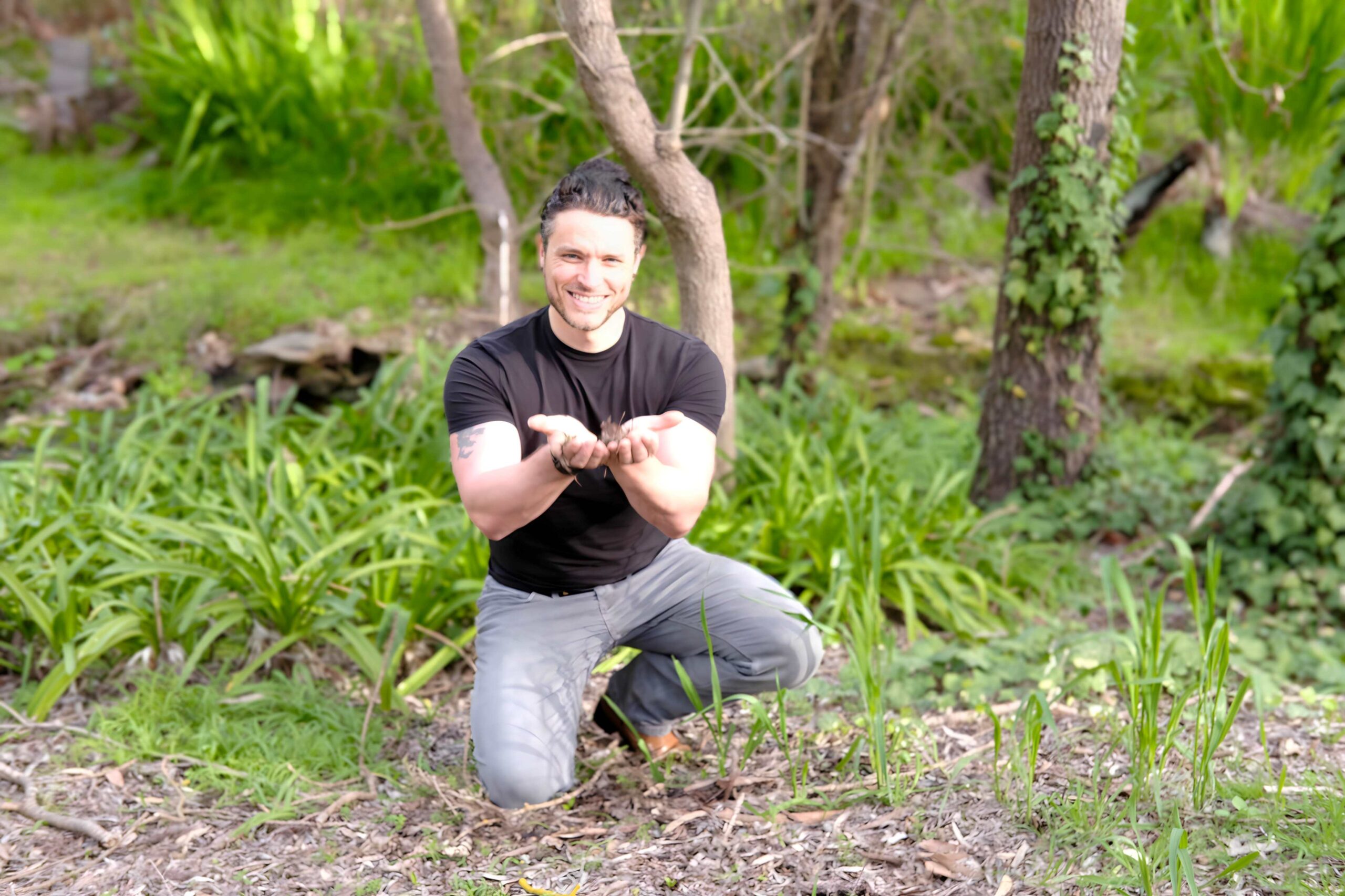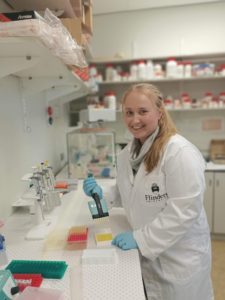Flinders University experts are exploring evidence that microbes in the soil and the environments around us can affect human microbiota and the 'gut-brain axis,' potentially shaping emotional states and relationship dynamics - including aspects of romantic love.
College of Science and Engineering biology researchers Dr Jake Robinson, Ondi Crino and Associate Professor Martin Breed, with UK neuroscientist Araceli Camargo, outline the idea in a review article proposing how the human gut microbiome might influence hormonal pathways involved in emotions commonly associated with love.
"We're not claiming microbes 'cause' love," says Dr Robinson. "Our aim is to map plausible biological routes, grounded in microbiology and endocrinology, that researchers can now evaluate with rigorous human studies."

The mini-review, published in an American Society for Microbiology journal, synthesises evidence that microbes can modulate hormones and key neurotransmitters such as dopamine, serotonin and oxytocin.
"We are exploring how the evolutionary underpinnings of microbial-endocrine interactions could provide important insights into how microbes influence emotions beyond love, including hate and aggression.
"If these pathways are confirmed, the findings could open avenues for microbiome-informed strategies to support mental health and relational wellbeing. For now, it provides a roadmap for careful, hypothesis-driven science."

As part of his research, Dr Robinson and colleagues are also mapping the complex web of interactions between biological, environmental and social systems - focusing on the potentially powerful role of soils in this network.
"As well as emitting important chemical and microbial signals, healthy soils support vegetation that improves air quality, buffer noise and moderate temperature to create immersive environments that affect our nervous, endocrine and immune system," adds Associate Professor Breed.
"Conversely, soil degradation can increase unhealthy airborne particulates and reduce the richness of the aerobiome, with possible downstream effects on inflammation and mental wellbeing."
Dr Robinson, the author of nature ecology books Invisible Friends, Treewilding and the new Nature of Pandemics, (due out in October), is launching a new national initiative to raise awareness of the need for soil health and to change people's perceptions and knowledge of food systems.

Next month Dr Robinson will present a free public online seminar at the 'Soil Yourself September' series, discussing whether or how soils influence our minds - "from the food we eat and the air we breathe to the multi-sensory experiences it shapes and supports".
The month-long series starts on 3 September with talks by Flinders University gut health researcher Dr Alyce Martin and Professor Felice Jacka, director of the Food and Mood Centre at Deakin University.
Other speakers include Dr Feargal Ryan and Dr Craig Liddicoat (Flinders University), noted Australian author Bruce Pascoe and Ariane König who focuses on sustainability science and governance at the University of Luxembourg.
In their latest study, Dr Robinson and Associate Professor Breed were involved in an investigation where soil biodiversity in urban greenspaces was measured in 13 cities across China.
The study, just published in Nature Cities, found that cities tend to boost local soil biodiversity but make soils more homogenous across regions, reducing large-scale diversity and stability.
"In all, our research group is calling for cross-sector collaboration in restoration, urban planning and public health to design environments that are not just biodiverse, but biocompatible," says Dr Robinson.
The mini-review 'Does a microbial-endocrine interplay shape love-associated emotions in humans? A hypothesis' (2025) by Jake M Robinson, Ondi L Crino, Araceli Camargo and Martin F Breed has been published in mSystems: Microbial Ecology & Evolution (American Society for Microbiology). DOI: 10.1128/msystems.00415-25 https://doi.org/10.1128/msystems.00415-25
The new article, Unforeseen high continental-scale soil microbiome homogenization in urban greenspaces (2025) by Xin Sun, Jake M Robinson, Manuel Delgado-Baquerizo, Anton Potapov, Haifeng Yao, Biao Zhu, Alexei V Tiunov, Linxiu Zhang, Faith Ka Shun Chan, Scott X Chang, Martin F Breed, Nico Eisenhauer, Stefan Scheu, Zhipeng Li and Yong-Guan Zhu has been published in Nature Cities DOI: 10.1038/s44284-025-00294-y
The 'Grounded Minds' consortium, a collaboration between Flinders University and Deakin University, is launching a new initiative next month. The public can listen in to experts in the collective who will present their research in a 'groundbreaking' series of 'Soil Yourself September' lectures.






